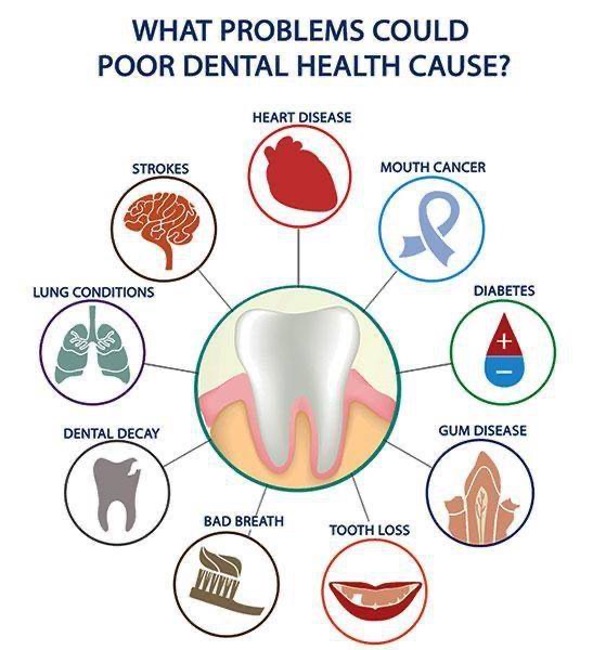We know today that the oral cavity is the gateway to your body. The health of your mouth is therefore the gateway to your overall health.
There is a direct relationship between diseases of the mouth and their effects on the body.
In this column, we will discuss how good oral health not only prevents pain and suffering, it enhances your medical health.
Your oral health offers clues about your overall health. Your mouth is immersed with bacteria. Since your mouth is the entry point to your digestive and respiratory tracts some of these bacteria can cause disease.
Normally the body’s natural defenses, supported by good oral health care; such as daily brushing and flossing, helps keep bacteria under control. However; without proper oral hygiene, bacteria can reach levels that might lead to oral infections, such as tooth decay and gum disease. Certain diseases, such as diabetes, HIV/AIDS and Covid-19 lower the body’s resistance to infection making oral health problems more severe.
Oral bacteria and gum diseases can also contribute to various medical diseases and conditions. See some examples below:
- This infection of the inner lining of your heart chambers or valves usually occurs when bacteria or other germs from another part of your body; such as your mouth, spread through your bloodstream and attach to certain areas in your heart.
- Cardiovascular disease. Research suggests that heart disease, clogged arteries and strokes might be linked to the inflammation and infections that oral bacteria can cause.
- Pregnancy and birth complications. Periodontitis has been associated with premature births and low birth weight babies.
- Certain bacteria in your mouth can be directed to your lungs, causing pneumonia and other respiratory diseases.
- By reducing the body’s resistance to infection, diabetes places your gums at risk. Gum disease appears to be more frequent and severe among people who have diabetes. Research shows that people who have gum disease have a harder time controlling their blood sugar levels. Regular periodontal care can improve diabetes control.
- HIV/AIDS. Oral problems, such as painful mucosal lesions are common in people who have HIV/AIDS.
- This bone-weakening disease is linked with periodontal bone loss and tooth loss. Certain drugs used to treat osteoporosis carry a small risk of damage to the bones of the jaw.
To protect your oral health, practice good oral hygiene daily. Brush your teeth at least twice a day for two minutes each time. Look into the mirror when you brush. Use a soft-bristled brush and fluoride toothpaste. Floss daily. Use mouthwash to remove food particles left after brushing and flossing. Eat a healthy diet and limit sugary foods and drinks. Replace your toothbrush every two to three months, or sooner if bristles are splayed or worn. Schedule regular dental checkups and cleanings. Avoid tobacco use.
Investment in your overall health by practicing good oral habits not only prevents unnecessary pain and suffering but it creates healthier conditions for your body.
Protect yourself by learning more about the connection between your oral health and overall health
Dr. Kendal V. O. Major is Founder and CEO of Center for Specialized Dentistry which is a comprehensive family dental practice operating in Nassau and Freeport. He is the first Bahamian Specialist in gum diseases and dental implants since 1989. He also is a certified Fast braces provider. His practice is located at 89 Collins Avenue, Nassau at (242)325-5165 or [email protected]






